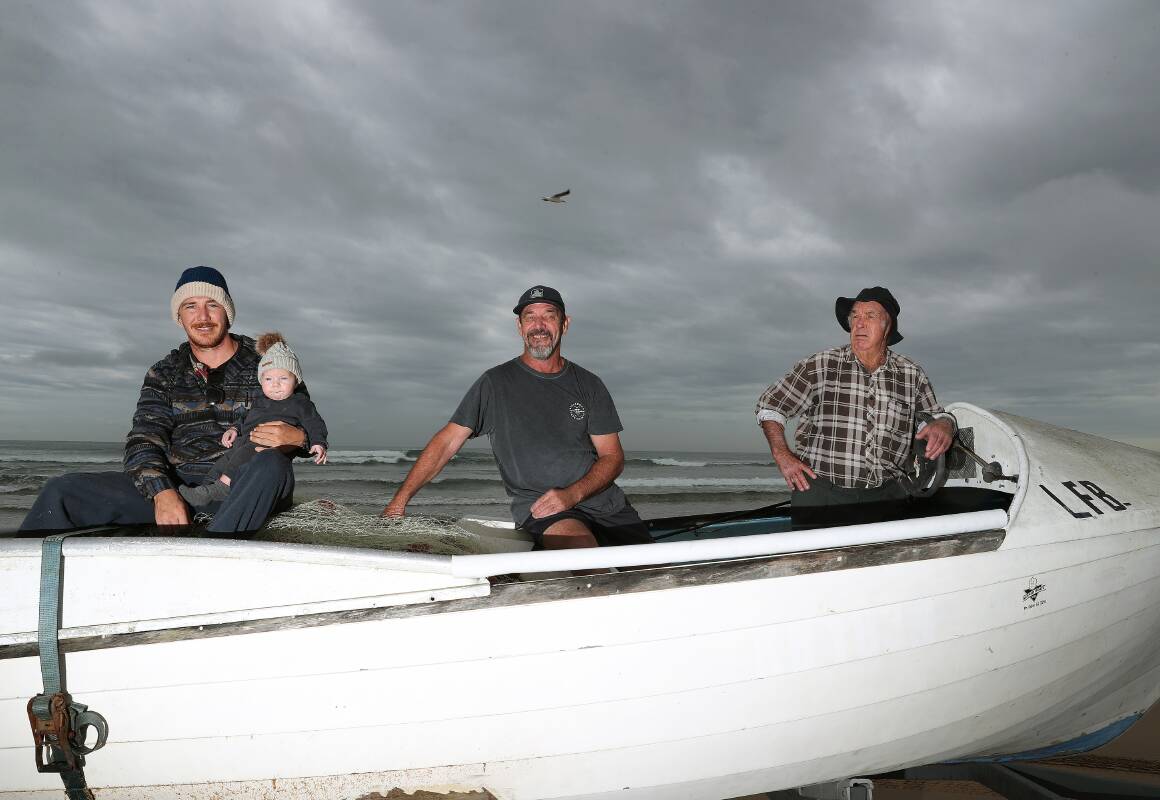
FOR the mullet men of Port Stephens, this year's haul is shaping up to be the one that got away.
Standing on Birubi Beach, fourth generation fisherman - or "fisho" - Greg Tarrant, points to the spot where his crew would usually be dragging bulging nets of silver ashore.
Every year at Easter, in a team of about eight men, the Tarrants try their luck in the east coast's "mullet run".
As mullet from estuaries, lakes and rivers spill out into the ocean, making their way north to spawn, fisherman up and down the coast cast their nets off beaches and inlets with hopes of a big haul.
Most years the Tarrant crew would have more than 200 tonne of mullet by the start of May. Greg told the Newcastle Herald they have barely cleared 20 this year - a "fair whack" to the hip pocket.
"Usually each crew member ends up with between 30 and 40 grand for the six or eight weeks works which is a large part of our income for the year," he said.
"Who knows what we will do this year, I guess this is all part of it. I still wouldn't trade this life in for an office job."


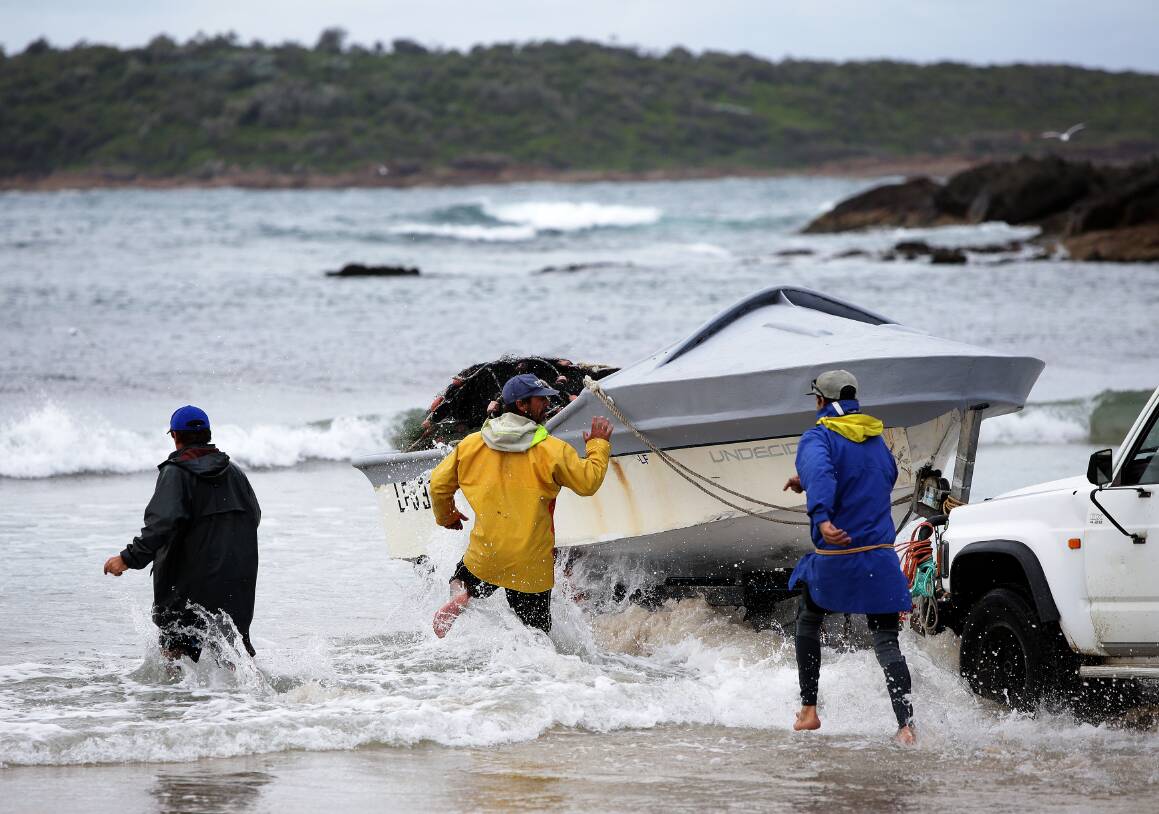
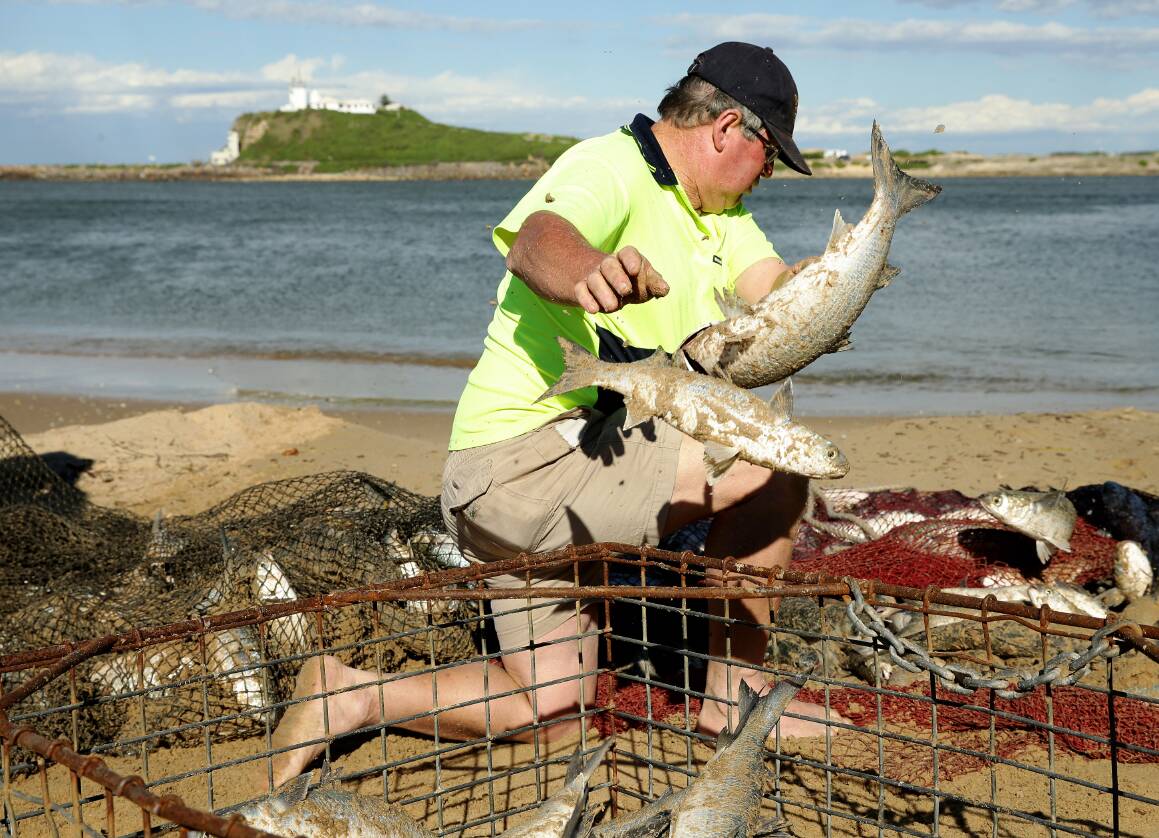


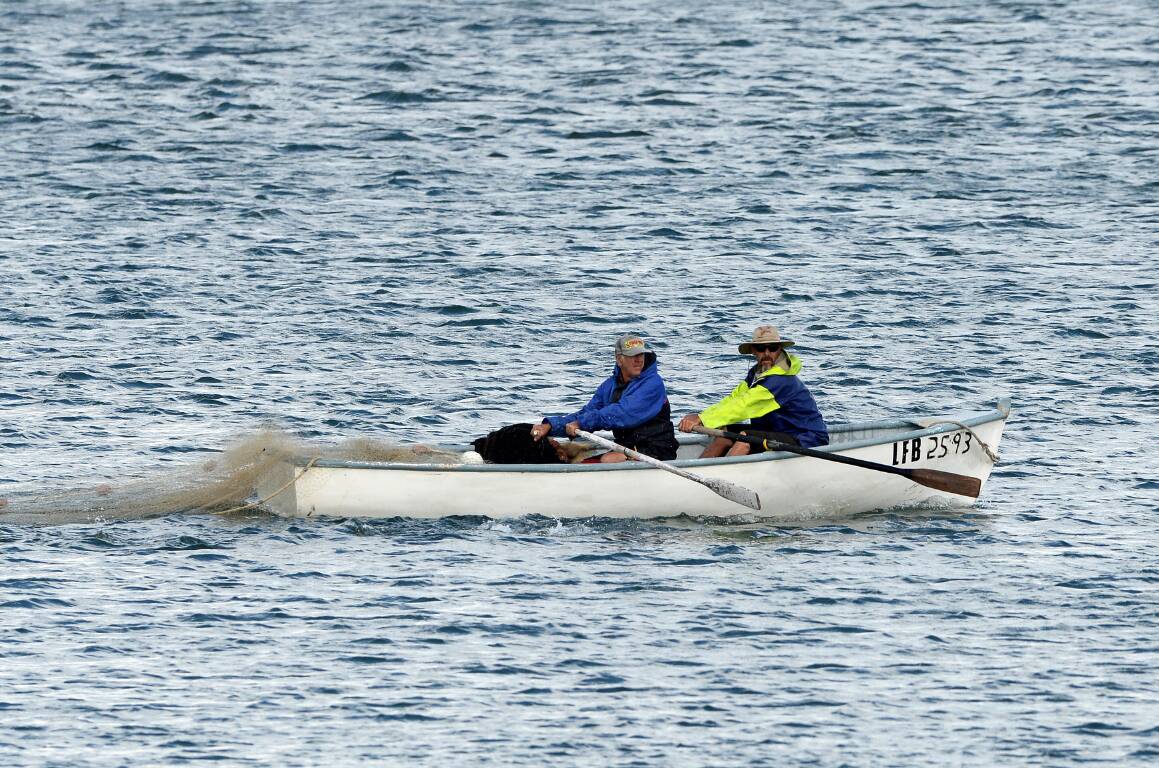
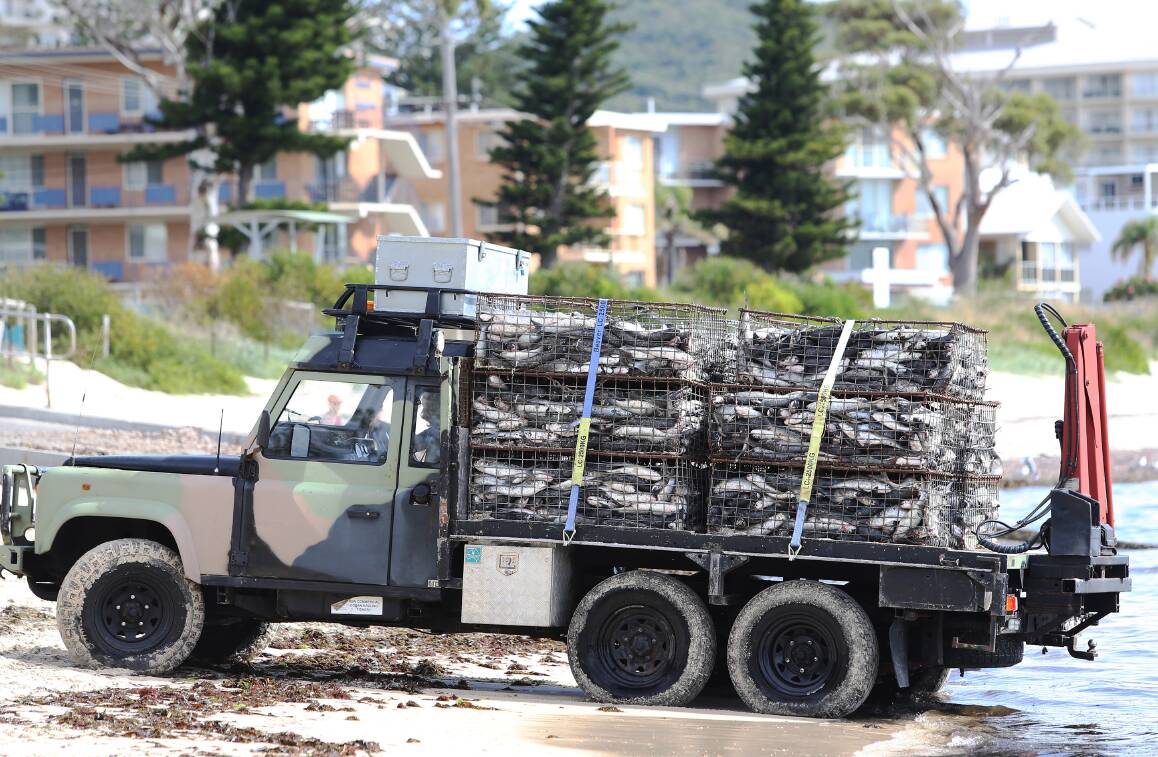

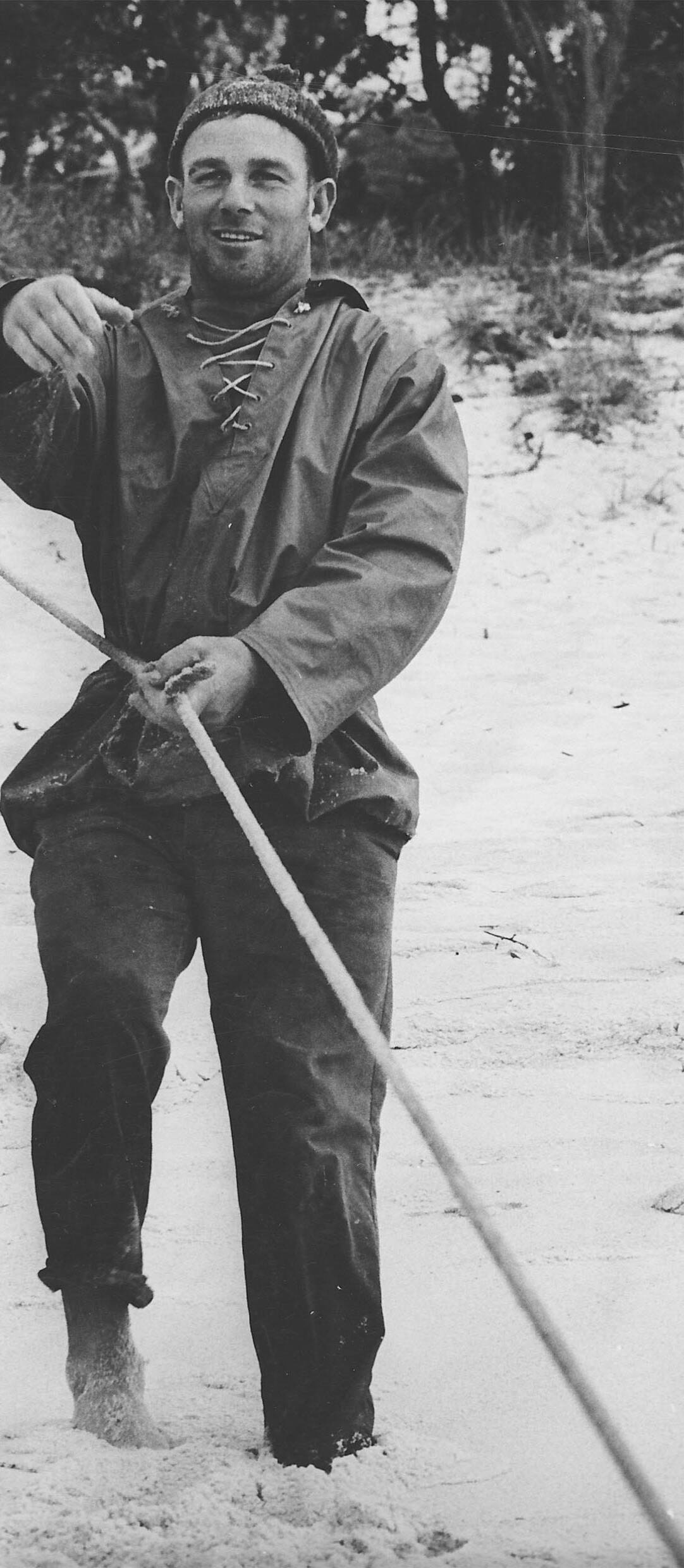
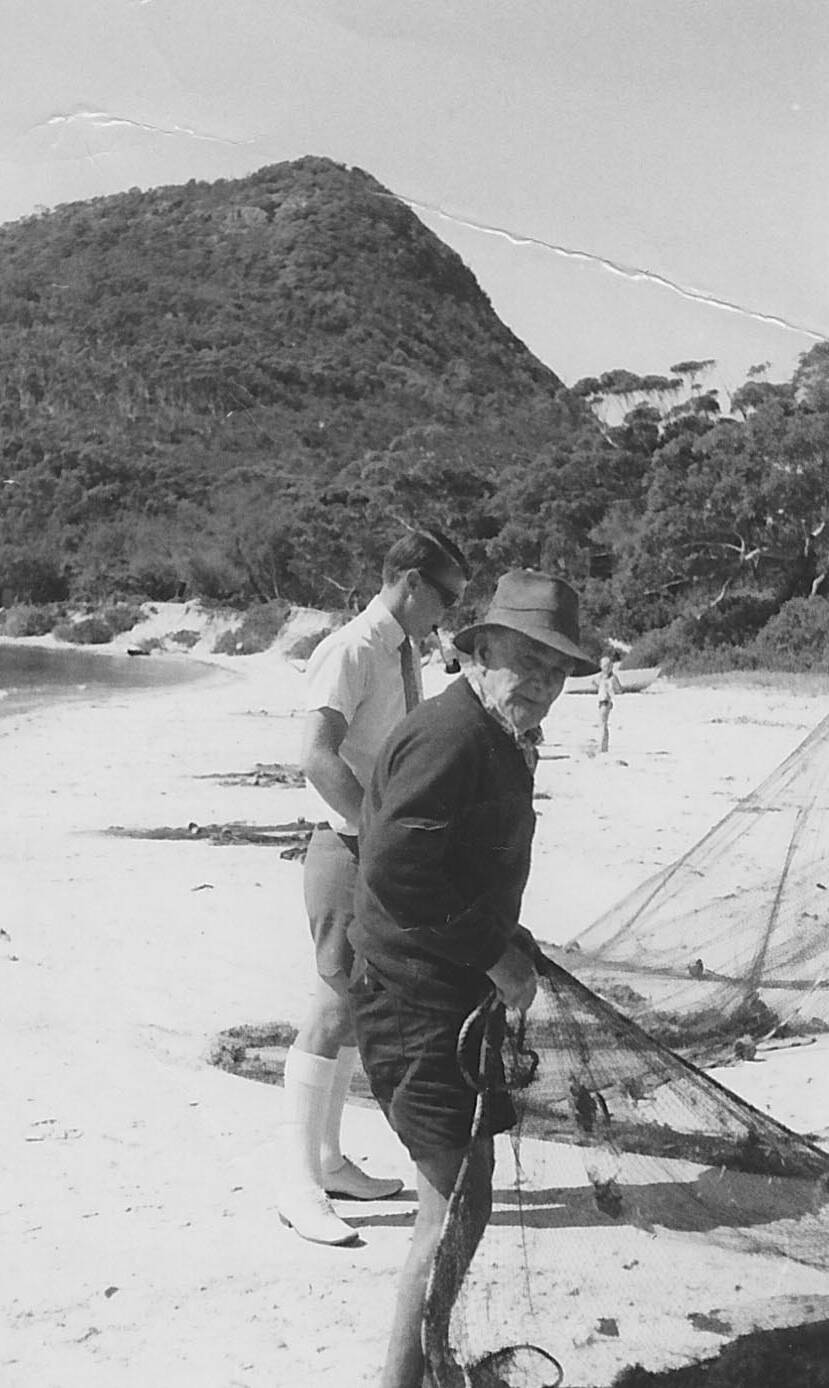
Like his son, Lee, and father, Glyn, the 54-year-old has been fishing the waters off Birubi for mullet since he was 14.
Greg said the flooding rain seen around the Hunter in March forced fish out of the river system early - a theory backed by Port Stephens resident fishing buff John "Stinker" Clarke.
Mr Clarke, who has penned a number of books on fishing in Port Stephens - drawing from the Tarrant family experience - said the mullet run has an important place in the region's history.
"As soon as white man started recording fishing activity in the area we have records of the mullet run," Mr Clarke said.
"The Tarrants have been a pivotal family in the industry since Greg's great grandfather."
The 73-year-old former teacher has lived in Fingal Bay for almost 50 years and said this is first time he has not seen any "mullet action" on local beaches.
"Usually it's a carnival atmosphere here with trucks and speedboats and people coming for a sticky beak."
Starting the season out in Stockton, Greg and his crew get to the beach before dawn and wait for schools of mullet, sometimes camping out for days at a time.
The fish tend to swim in close to the beach and, to the untrained eye, are just a dark, disturbed patch of water heading north in the surf.
When they spot a patch, the crew hit the water and track an arc around the school of mullet, feeding a net out behind the boat to encircle their catch.
In calmer estuaries they do it the traditional way, in row boats. At beaches like Birubi, power boats and four wheel drives are used to get the haul in.
The crew will get up to 40 tonne of mullet on a good day, which are put in cages and picked up by a flatbed truck with a hi-ab on the back then taken to the co-op.
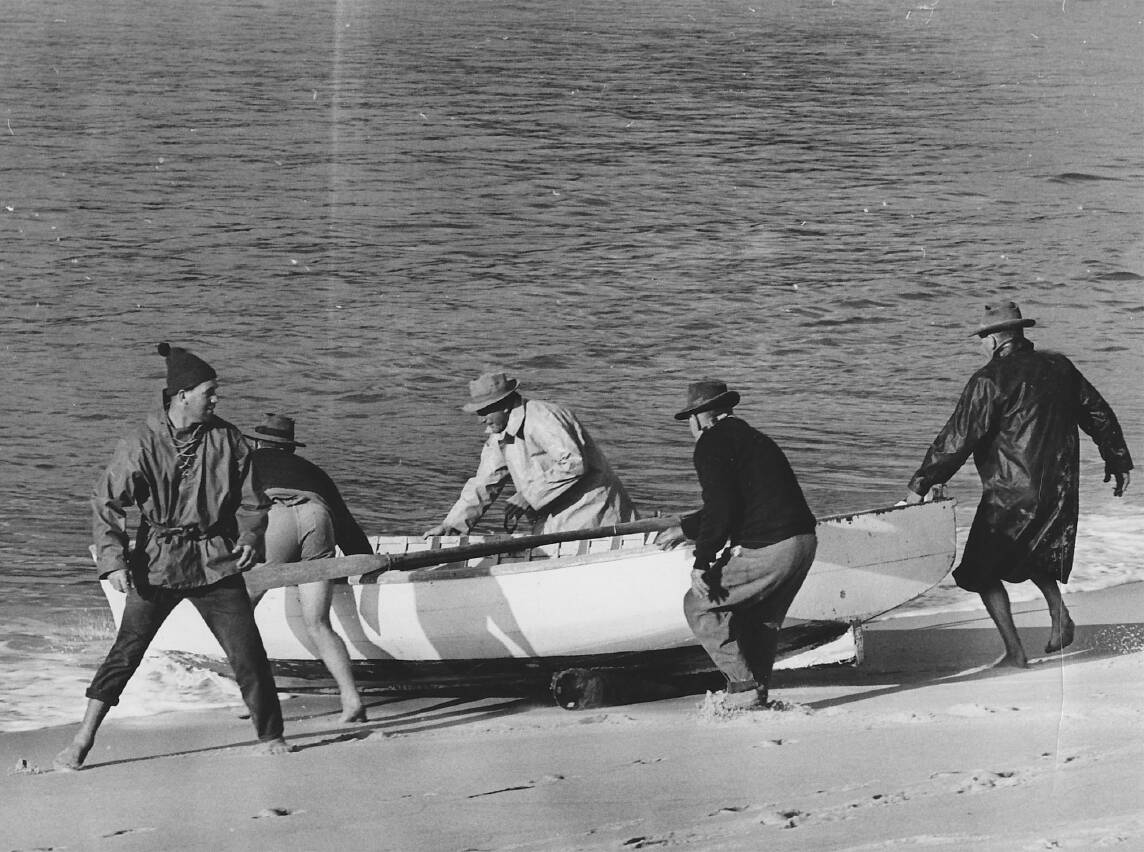
82-year-old Glyn Tarrant said the process has changed a bit since he started out.
"It was all done with row boats and by hand back then," Glyn said.
"We would have to shovel the whole lot in and out of the truck."'
The mullet are then sent to Warren Markwell seafood processors in Chinderah. While Greg said every part of the mullet is used in one way or another, the fish's value comes from its roe content, which is exported internationally as a delicacy.
Despite their massive catches most years, Greg said his crew's technique is one of the most "sustainable" fishing practices.
"We are seeing more mullet come through every year and our catches hardly make a dent in schools," he said.
"We are a small, family operation and the basic technique hasn't changed since my great grandfather was doing it."
According to the Department of Primary Industries (DPI), beach hauling during the mullet run is one of Australia's most sustainable methods of catching commercial fish. DPI said the industry contributes to the State economy and regional employment.
"The commercial harvest of Sea Mullet during their annual spawning migration is part of the Estuary General and Ocean Hauling Fisheries in NSW," the DPI spokesperson said.
"These fisheries have been subjected to environmental assessments to ensure their activities are sustainable."

When they are not chasing mullet, the Tarrants are out catching prawns and lobsters, among other sea foods which they will rely on this year to make up the financial loss.
With four-month-old son Tate, smiling in his arms, Lee Tarrant said his family connection to the industry is "everything".
"It'll be good to see this little bloke get involved when he is old enough. Maybe we'll let him wait until he's a bit older than 14," Lee said.
Lee said while being a fisho is hard work at times, he is "never bored".
"Everything is seasonal, so it's not like working a nine to five job," he said.
"We'll be on the beach for six weeks, then we will be chasing bream in the winter time and then on to the crabs. It's always something different.
"I get to spend the day out here with my family and my mates. What more could you ask for."







